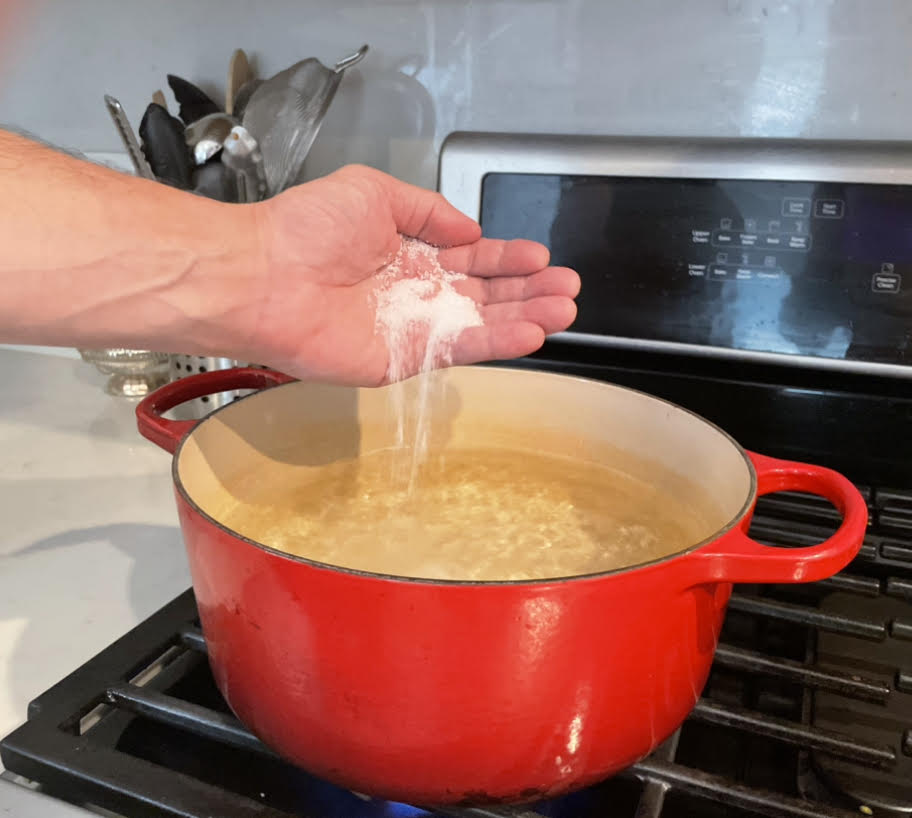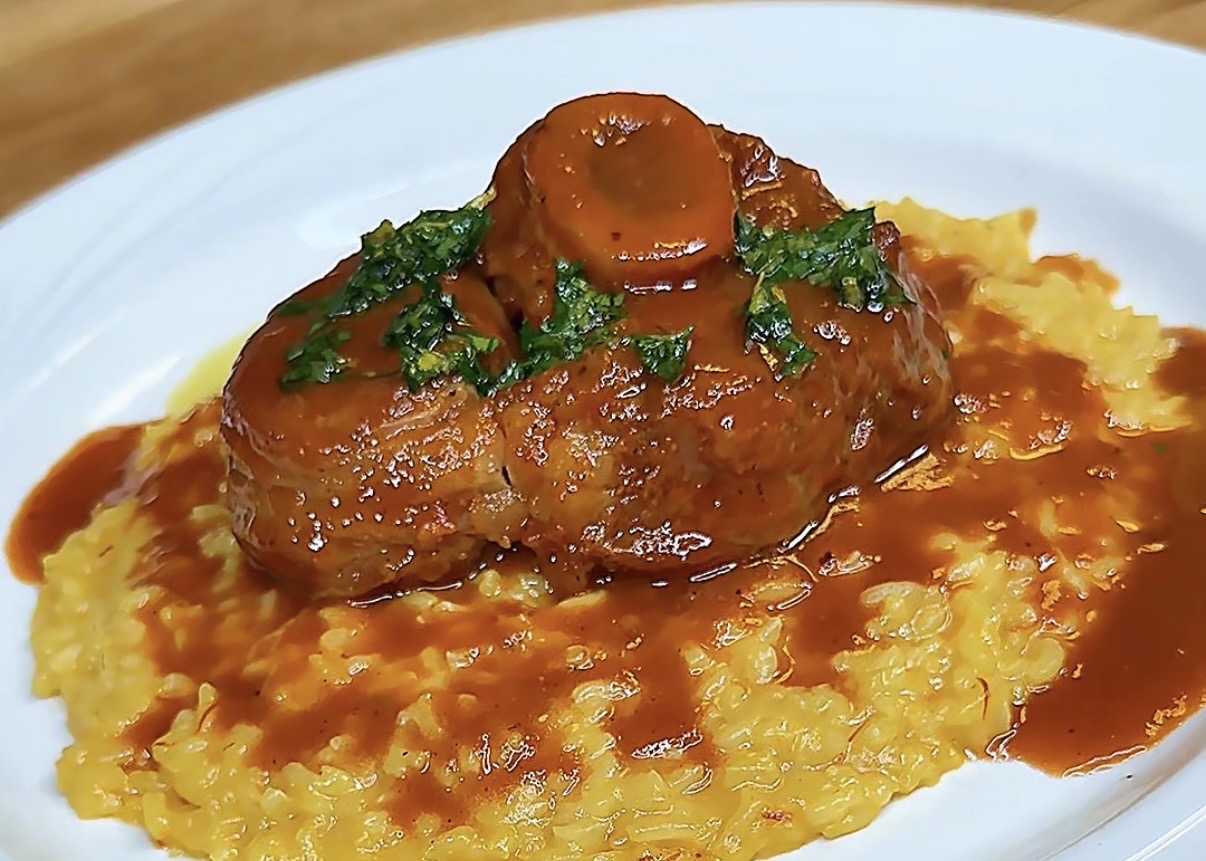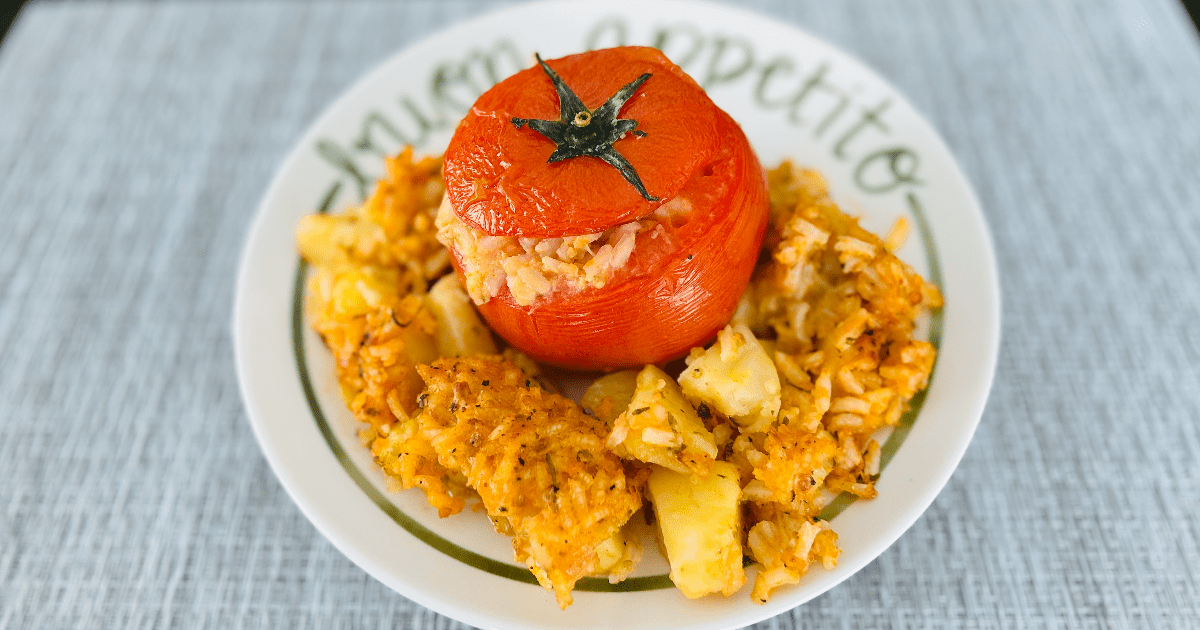It occurred to us in culling through pasta recipes that there was no consensus as to how much salt to add to the boiling water when making a pound of pasta. The "less" side ranged from a pinch, and the "more" tapped out at an ambiguous (and unappealing) "salty as the ocean." Have these people ever been to the beach?
The reality is that most home cooks just kind of wing it, figuratively and literally, adding in "some" salt without any real consideration to the impact it might have on the finished dish.
To try to remedy this little-known yet potentially important oversight, we consulted with our team of Appetito experts, including well-known chefs and recipe developers. What we found was some corroboration but no clear consensus. Our general takeaways are the following:
- A full palmful of coarse salt or a half-palmful of fine salt seems to be the way to go.
- Less, if not zero, is best when it comes to making pasta that will be paired with sauces that have inherent saltiness.
- Different salts (e.g. Kosher vs. Sea) and textures (coarse vs. fine) have different impacts. Therefore...
- Tasting your pasta water is something you should do, just after you add the salt to the boiling water and give it a stir, but before adding the pasta.
- You can always add but not take away...
- Fresh pasta requires more salt because it's in the water for less time.
- Use roughly 6 quarts of water for a pound of pasta.
That said, here we share specifically what our esteemed contributors have to say so you can decide what works best for your important but under-appreciated pasta-water-salting practices:
Fabrizio Facchini, Michelin-starred Chef and owner of Stellina Ristorante in Oyster Bay, New York
The rule is 10 grams (3/4 tablespoon) of salt for 1 liter (roughly 1 quart) of water. But I have to say that sometimes I lower the salt a bit if I do recipes with ingredients that are very salty already; the best example of this is cacio e pepe.
Michele Di Pietro, Founder, Mangia with Michele
On my website and in my recipes, I advise readers and home cooks the following: Use a large, 7-8 quart, pot with 6 quarts water for 1 pound of pasta. Bring the water to a boil before adding the salt. Use 1 1/2 - 2 Tbsp fine salt. An exception to this is when the recipe has a lot of salty ingredients, as in my Funky Fettuccine, which has anchovies, bottarga, and colatura di alici. In this case, I’ll suggest no or very little salt.
Gaetano Arnone, Private Dining Chef and Culinary Instructor at Villa le Corti in Tuscany
I had the pleasure of cooking with Andrea Felicetti of Monograno Felicetti. He shared with me the standard ratio, which is 10 grams of salt per 1 liter of water and 100 grams of pasta. In my experience, this is a great starting point. If I’m cooking fresh pasta, I like to salt the water a little more as the pasta will be in the water for less time. It is also important to remember that if you’re making something like a traditional Carbonara with guanciale, the standard ratio may be too salty once the guanciale is rendered out. Simply put, taste a spoonful of the water and see where it’s at depending on what pasta you’re choosing to enjoy on that occasion. Everyone’s palate is different, so some experimentation will be needed. Worst case scenario is that you’ll just have to eat a LOT OF PASTA!
Cara Di Falco, Founder, Cara’s Cucina
I never measured. I WILL taste the salt to gauge the salinity. I think people forget that salt does have different degrees of flavor. For me, I know my big pot gets a palm full or approximately 3 tablespoons. (if I was gonna guess).
Danielle Caminiti, Culinary Artist & Recipe Developer, Author of From Courtroom to Cucina
I can only tell you how many circular motions were made with the spouted Morton salt canister in relation to how large the pot was. Nothing was ever measured. I would say two pounds of pasta is 7-8 quarts of water, and I would go around twice quickly with the salt when the water is boiling. With 1 pound, I'd use 3-4 quarts of water and go around once quickly. What this quantifies to, for the people who need measurement, is probably 1 to 1-1/2 tablespoons for one pound and 2-3 tablespoons for two pounds. The caveat would be if it’s a very salty sauce like a Puttanesca I may go lighter.
Rocco DiSpirito, Chef and Television Personality
There's no set amount. Always to taste. Depends on salt. And which dish you are making. For carbonara, I don’t salt the water at all.
Flour + Water, Pasta Brand from the San Francisco Restaurant
Each box of this highly regarded start-up pasta brand—read our review here—features a prominent note on this topic: "SALT THE WATER! This is the most important flavor step when making pasta. Bring a large pot of water to boil + dissolve 1/4 cup of salt for 4 quarts of water. Add your pasta + cook until al dente."
There you go. Probably a lot more than you ever thought to think about putting salt in your pasta water. But that's the beauty of Italian food, and how simple things can be made so delicious through attention to not only ingredients but to details as well.
One last opinion, from our contributor Katie Parla, which seems to perfectly articulate the desired result, is her lyrical advice to "Salt the water until it tastes like a seasoned soup."






